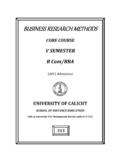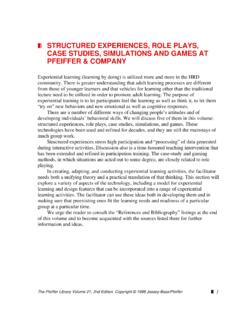Transcription of Special Education Process Guide - arksped.k12.ar.us
1 Special Education Process Guide Arkansas Department of Education , Special Education Unit October 1, 2018 ii Introduction The purpose of this document is to supplement the Arkansas Department of Education (ADE) Special Education and Related Services Procedural Requirements and Program Standards and ADE Special Education Eligibility Criteria and Program Guidelines for Children with Disabilities Ages 3-21. Individuals using this document will be guided through particular contexts in the Special Education Process . Each context provides a list of forms, an overview of the Process , and a walk-through of the forms used.
2 Resources are provided where appropriate. For more information, please contact the Arkansas Department of Education , Special Education Unit. Throughout the document, terms from the required Special Education forms will be noted in bold. Specific directions will be noted in italics. When possible, the Procedural Requirements and Program Standards and the Eligibility Criteria and Program Guidelines are referenced with a notation of the regulation number in parentheses. The ADE Special Education Unit would like to express sincere gratitude to the Paperwork Reduction Task Force for all of their hard work and dedication to streamlining required Special Education forms and developing this Process Guide to support IEP teams in effectively using the new paperwork.
3 Task Force Members: Dr. Rebecca Austin, Assistant Special Education Supervisor, Bryant Public Schools Bonnie Boaz, Coordinator, Arkansas Transition Services Brigid Bright, Special Education Supervisor, Harrison Public Schools Lanna Bullington, Early Childhood Coordinator, Ozarks Unlimited Resources Becky Cezar, Former Administrator for Monitoring and Program Effectiveness, ADE-SEU Cindy Creasey, Teacher, Little Rock School District Rhonda Daniel, Special Education Supervisor, Southeast Educational Cooperative Yvonne Greene, Early Childhood Coordinator.
4 ADE-SEU Lisa Haley, Associate Director, ADE-SEU Krista Harrell, Program Advisor, ADE-SEU Gretchen Hicks, Speech Language Pathologist, Easter Seals of Arkansas Vicki Holt, Special Education Supervisor, Conway Public Schools Cassie Howell, Attorney, Disability Rights Arkansas Karen Massey, Early Childhood Coordinator, Southwest Educational Cooperative Melissa Moore, Special Education Supervisor, Cross County School District Marla Pearson, Special Programs Coordinator, Responsive Education Solutions Arkansas Courtney Salas-Ford, ADE Deputy General Council Rhonda Saunders, Administrator for Special Programs, ADE-SEU Melinda Smith, Special Education Supervisor, Little Rock School District Robin Stripling, Curriculum and Assessment Coordinator, ADE-SEU Cindy Weathers, Parent Angela Winfield, Former Special Education Supervisor.
5 Southwest Educational Cooperative iii Table of Contents Initial Evaluation and Eligibility Process 1 The Referral and Evaluation Process Chart 2 Conduct Child Find Activities 3 Initial Evaluation Overview 4 Initial Evaluation Forms Step-by-Step Guidance 7 Record of Access 7 Special Education Referral 8 Notice of Conference 10 Referral Conference Decision 14 Existing Data Review 15 Notice of Action 19 Evaluation Programming Conference Forms Step-by-Step Guidance 24 Notice of Conference 24 Evaluation Programming Conference Decision Form/Notice of Decision 28 Specific Learning Disability Eligibility Determination 30 Individualized Education Program Process 35 Timeline Overview 36 IEP Meeting Overview 37 IEP Forms Step-by-Step Guidance 40 Notice of Conference 41 Notice of Conference, Flowchart A 44 Notice of Conference.
6 Flowchart B 45 Record of Access 46 Individualized Education Program 46 Parent Consent to Access Public Insurance and to Release Personally Identifiable Information 68 Notice of Action 70 Early Childhood Section 77 Transition Section 87 iv Reevaluation Process and Eligibility Process 95 Reevaluation Chart 95 Reevaluation Overview 96 Reevaluation Forms Step-by-Step Guidance 99 Notice of Conference 99 Existing Data Review/Notice of Decision 102 Notice of Action Parent Consent 106 Evaluation Programming Conference Decision Form/Notice of Decision 109 Specific Learning Disability Eligibility Determination 112 The Paperwork Reduction Task Force used the Oklahoma State Department of Education (OSDE) Special Education Process Guide as a model for the creation of this guidance document.
7 The OSDE s exemplary work is greatly appreciated. 1 Initial Evaluation and Eligibility Process Prior to the initial determination that a child is a child with a disability, a full comprehensive and individual evaluation must be conducted in all areas related to the suspected disability of the child. This section describes the procedures and processes involved in conducting an initial evaluation and determining eligibility under IDEA for Special Education and related services. Throughout this Process , it is the responsibility of the Local Education Agency (LEA) to ensure that the parent(s) of a child are given the opportunity to fully participate.
8 When conducting an initial evaluation, the following should be considered: If the child is a child with a disability; Whether the child needs Special Education and related services; The educational needs of the child; and The present levels of academic achievement and functional performance (related developmental needs) of the child. 3 Conduct Child Find Activities Each Local Educational Agency is responsible for ensuring that all children with disabilities from birth to twenty-one (21) years within its jurisdiction and in need of Special Education and related services are identified, located and evaluated, regardless of the severity of their disability.
9 Each local educational agency must develop and maintain a written child find plan outlining the systematic and continuous efforts the local educational agency will undertake to meet its responsibilities as described. Screening: Screening is a Process to identify or predict children who may be at risk for poor learning outcomes. Screening assessments are typically brief, conducted with all children at a grade level, and may be followed by additional diagnostic testing or short-term progress monitoring. A variety of methods may be used to screen children, including performance on assessments, curriculum-based measures, daily classroom work, observations, hearing and vision screeners, developmental milestones, and/or kindergarten readiness measures.
10 Screening to determine appropriate instructional strategies for curriculum implementation is not considered an evaluation for eligibility for Special Education services (and thus does not require parental consent). The initial screening described in the Dyslexia Resource Guide would be consistent with this description. General Education Interventions, Accommodations, and Strategies: When a school s screening Process reveals that a child or groups of children are at risk of not meeting the Arkansas Academic Standards, the Arkansas Child Development and Early Learning Standards and/or established behavioral expectations, the child s need for evidence-based interventions should be considered.








